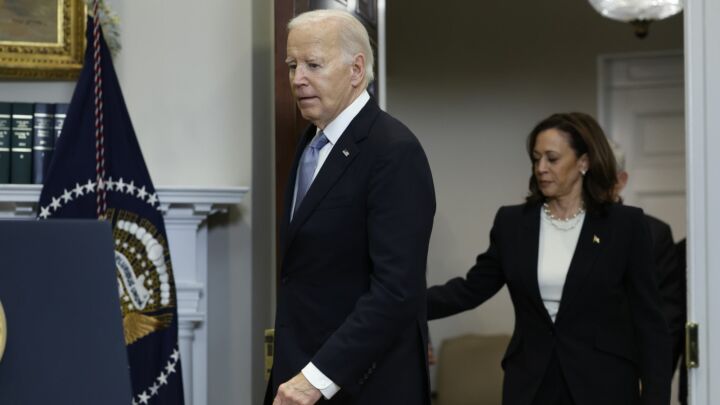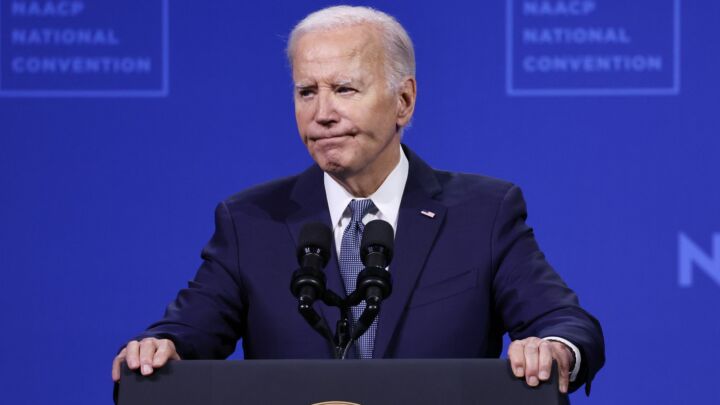The sham trial of Evan Gershkovich
Russia’s appalling treatment of the American journalist is straight from the Soviet playbook.

Want to read spiked ad-free? Become a spiked supporter.
After more than a year in Russian detention, American journalist Evan Gershkovich went on trial this week for espionage charges. The closed trial is taking place in the city of Yekaterinburg, 1,500km east of Moscow, where Gershkovich spent the past 15 months in a high-security prison. The Wall Street Journal reporter has been charged with espionage and could face up to 20 years in prison.
Gershkovich flatly denies the charges, as does his newspaper and the US authorities on his behalf. US national security spokesman John Kirby said directly that ‘Evan is not a spy’, which is an unusually categorical statement to come from someone in his position about something like this. Many of Gershkovich’s colleagues, as well as former Moscow correspondents, have joined forces in a campaign of letters, messages and collective demonstrations of solidarity.
A small group of reporters, including the BBC’s Steve Rosenberg, was briefly allowed into the courtroom on the opening day. They saw Gershkovich arrive and acknowledged his smiles from his metal and glass defendant’s cage. This is standard practice and has a triple purpose: to show Russians that their country is acting against foreign spies, to reinforce the idea that foreigners are dangerous, but also to reassure family, friends and interested foreign diplomats about the defendant’s welfare. Gershkovich actually looked to be in reasonable health and in good spirits, despite spending over a year in the notoriously strict Lefortovo prison.
Gershkovich was arrested in March last year at a steakhouse in Yekaterinburg and accused of collecting classified information. The prosecutors and Russia’s security service, the FSB, claim – in a typically overheated way – that he was caught ‘red-handed’ trying to obtain military secrets. They say that he collected classified information about the ‘production and repair of military equipment’ from a tank factory, using ‘painstaking conspiratorial methods… on the instructions of the CIA’.
There is no question that Gershkovich did go to the tank factory. He also talked to some employees and asked questions about production that could be seen as sensitive. This, of course, was his job as a foreign correspondent.
Of course, ferreting out sensitive information – information that the authorities of whatever country or enterprise would prefer not to see the light of day – is as much a spy’s job as it is the job of a journalist. And one person’s journalistic reporting can easily be nefariously presented as spying. It is also well known that intelligence organisations are not above using reporters to pursue their activities. The fact that this happens – yes, in the West, as in the Soviet Union and in Russia today – can give false allegations a plausibility that makes them all the more damaging.
For all that, the case of Evan Gershkovich is unusual. This is the first time that an accredited Moscow correspondent has faced espionage charges in Russia since the end of the Cold War. The last was in 1986, with the arrest of Nicholas Daniloff, bureau chief for US News and World Report. Daniloff was arrested under suspicion of espionage after he was found in the possession of classified material, which he claims was planted on him by the KGB. He spent only three weeks in detention before being freed under an exchange deal.
His arrest nonetheless came as something of a surprise. Mikhail Gorbachev had by then established himself in power and was starting to relax restrictions on foreign and domestic media. There was speculation that this was either a sign of a KGB backlash against Gorbachev or a stratagem designed to secure the freedom of a Soviet agent in US custody – or both.
Despite the four decades that have elapsed since then, there are several ways in which the case of Gershkovich conforms to the old pattern.
Like Daniloff, Gershkovich, now 32, has a Russian emigre background. His parents were Soviet Jews who settled in the US. Like Daniloff, Gershkovich was an experienced reporter in Russia, spending six years there. For nearly three years, he worked with the Moscow Times before moving to the Wall Street Journal in 2022. He may therefore have been more relaxed about some of the perils than a new arrival.
Like Daniloff, too, Gershkovich has excellent Russian, being brought up bilingual. This allowed him to circulate and socialise easily in Russia. This may be a big asset for a foreign reporter, but it is also something that can arouse suspicion on the part of the Russian authorities – as it did with the Soviet authorities. This is especially true at times of international tension, prompting the question of whether Gershkovich would be on trial at all if relations between Russia and the US were better.
The resolution of the Daniloff case by way of a swap has raised hopes, but also apprehension, about what happens next. The US authorities have accused Russia from early on of holding Gershkovich to augment its bank of exchanges. Donald Trump reiterated this in his TV debate with Joe Biden this week, describing the reporter as a hostage and vowing to free him if re-elected.
There have indeed been glimpses of attempts at a deal. Gershkovich’s case was raised by an American reporter at Vladimir Putin’s end-of-year press conference. The Russian president hinted at contacts with US officials about a swap. It also came up this February, after the death of Russian opposition figure Alexei Navalny in prison. It emerged then that he, and possibly others, had been the subject of talks about a swap that could have entailed Navalny going into Western exile in exchange for the return of a Russian agent. This was thought to be Vadim Krasikov, who has been imprisoned in Germany since 2021 for the assassination of a leading light of the Chechen opposition.
There is precedent for this. There has been at least one US-Russia prisoner swap since the start of the Ukraine war. In late 2022, US basketball player Brittney Griner, held on drug charges, was exchanged for Viktor Bout, a Russian arms dealer. In US terms, this was an expensive swap. The Americans had long resisted attempts by the Russians to free Bout, who had been arrested in Thailand in 2008. There are currently a dozen more Americans or US dual nationals detained in Russia as, the Americans insist, potential bargaining chips. They include former US marine Paul Whelan, who was sentenced to 16 years for spying four years ago.
There are plenty of reasons for apprehension in Gershkovich’s case. He is, after all, the first accredited Moscow correspondent to be arrested for spying since Daniloff, which inevitably posts a warning to other foreign reporters. That he has been held for a relatively long time, is standing trial and exchange attempts have apparently failed is even more worrying.
A conviction and a long prison sentence will only, alas, raise the price that Russia is likely to demand for his release. The price will be high, too, for Evan Gershkovich personally. Not only will he have suffered from his time spent in a Russian jail, but he will also have to re-think his future. The risk of being a journalist in Russia may well have become too high.
Mary Dejevsky is a writer and broadcaster. She was Moscow correspondent for The Times between 1988 and 1992. She has also been a correspondent from Paris, Washington and China.
Picture by: Getty.
To enquire about republishing spiked’s content, a right to reply or to request a correction, please contact the managing editor, Viv Regan.








Comments
Want to join the conversation?
Only spiked supporters and patrons, who donate regularly to us, can comment on our articles.